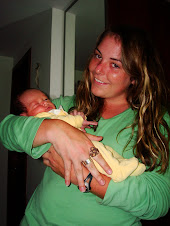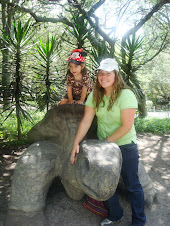Vengo a adorarte
(Here I am to Worship)
One of my greatest fears about coming to Ecuador was not being able to find community, especially since I have such a wonderful church family at Calvary and McKinley UMC and in Blacksburg with Campus Crusade for Christ. In the third week of our study abroad experience, a group of us from USFQ were invited to English Fellowship Church to a group called “The Twenty Somethings” for a small group Bible study and some praise and worship. The first time I was there we sang Impresionante es tu amor and Cuan grande es nuestro Dios and I cried because it was just so comforting. The majority of the group is Ecuadorian with some Columbians, South Africans, Nigerians, Canadians, and then us extranjeros de intercambio cultural. Santiago and Nicole, our leaders, moved to Ecuador from Washington D.C. Santi teaches the lesson in both Spanish and English and the group is invited to respond or contribute in the language that they feel most comfortable in. Our African brothers don’t know Spanish and some of our Ecuadorian brothers and sisters don’t know English and the rest of the group are más or menos bilingual, so it’s just amazing how everything works out.
The room where we gather reminds me of just about any other youth Sunday school room, floral couches and all. On the wall there is a mural with a cross and splashed across the bottom in red are the words Radical Juice which given the pun of communion, I think it’s very clever. The building is ironically situated on the corner of avenue Brasil y Americas which I find to be something more than a coincidence.
Even though the group is called “The Twenty Somethings” most of the members are on the other side of thirty with the student population mixed in. After worship we always go for a cafecito (coffee) and spend hours in deep conversation, usually about spiritual matters. We spend lots of time together whether it’s volunteering at Pan de Vida, going for coffee or ice cream, catching a Thursday night movie (since it cost all of $2.90), or going salsa dancing. I have had a blast getting to know some of our African brothers; Kingsley, Ambi, and Joseph love to tell stories of their homelands, of their families, of Civil War, and of Apartheid. They are really excited that I’m going to be in

Sometimes, we wonder why this group wants to spend so much time with us because there is definitely a decade
One thing I have discovered in conversing with our Ecuadorian brothers and sisters is a deep frustration with mission, especially international mission. When Ivan and I were chatting he told me that many North Americans just don’t understand the obstacles that must be overcome to obtain the papers to travel because, for us, the world is simply at our fingertips. He told me about his friends standing in lines to get a US visa and being humiliated and denied for various reasons, one of which is the flight threat of being single and not having distinctly permanent roots. Our brothers have just launched a micro business which purpose is to funnel funds into other organizations. They host events and sell tagua necklaces, which is a type of nut that when carved resembles ivory and is very unique to Ecuador. The sole intention of their business is to inspire, train, and support international Ecuadorian missionaries and send them to serve the world. Both of themgrew up on the street. Boris says that God found him abandoned and starving and that he would do anything to reveal such loving redemption and salvation to other children and youth struggling with the same demons as he was, lost and destitute in the alleys of Ecuador.
We attended a fundraising Worship Event to support the cause and let me just say, Ecuadorians can raise the roof right off the church building praising God. Afroecuatorians from Esmeraldas performed a native dance, a group of boys in Dodger jerseys did some break dancing to Spanish Christian rap, congregates were dancing up and down the aisles, and by the end of each worship song the youth were on their knees at the altar with arms lifted high. Instead of playing an offertory, the pastors popcorn-prayed the entire offering, for the hearts that were giving and the disciples that were receiving, which I’ve never before experienced in all my life in the Church. The entire night was very passionate, moving, and uplifting which prompted me to beg the question, when was the last time I had broken a sweat praising God? And I don’t mean because I was wearing wool and the preacher’s sermon made me feel uneasy. I have found that Ecuadorians don’t ‘go to church,’ they worship. I first realized this distinction when I went to college and became a part of VT’s Cru. Going to church is an action where we tend to be the focus and such a process is invariably linked with obligation or societal fulfillment. Worship has a godly focus; evangelical Ecuas understand that worship could never be a passive experience because it’s definitely not about us. Ecuadorians worship very passionately and also I’ve observed that they demonstrate immense gratitude during communion. Sometimes I think that we lean toward the more reverent side which means that we respect God so much that we almost lose the personal, flaming connection thereby forgetting that Jesus was radical, passionate, and unconventional. Worshiping in Ecuador reminds me so much of the time I spend in




No comments:
Post a Comment